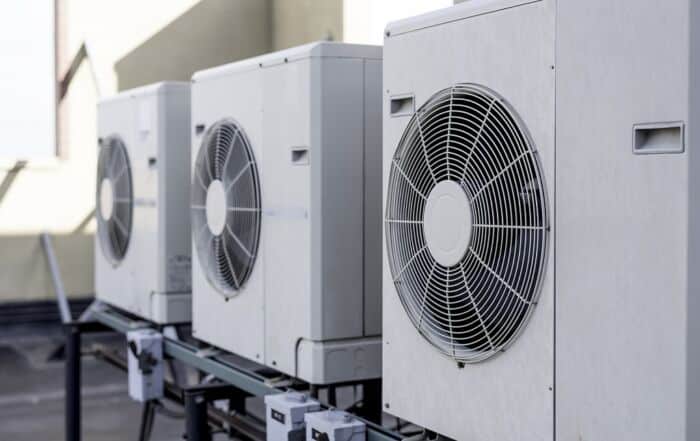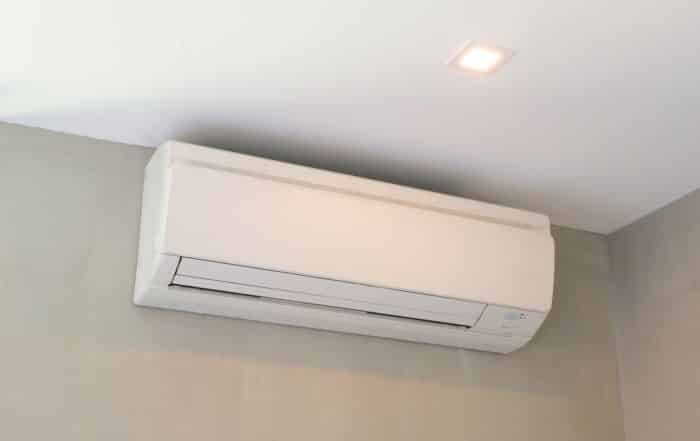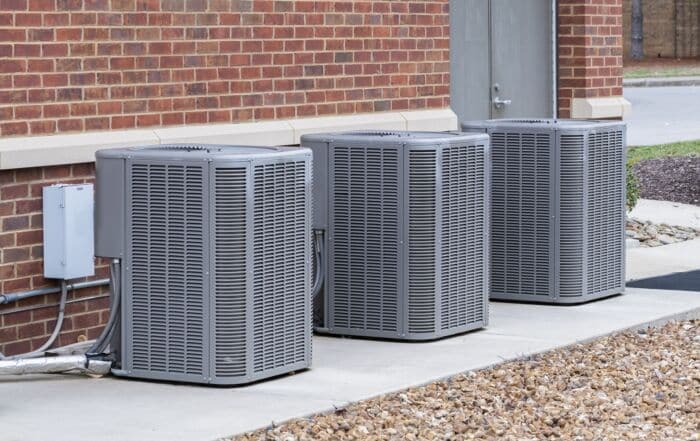If you’re a homeowner tired of sweating through sweltering summers, a ductless air conditioning system might be the solution you’ve been searching for. These systems are specially designed for compact living spaces where traditional HVAC setups aren't practical.
In this blog post, we'll explore the ins and outs of ductless air conditioning systems, uncovering their myriad benefits, functionality, and installation process. By the end, you'll have all the knowledge you need to decide if a ductless air conditioning system is right for your home.
Ductless air conditioning systems, also known as ductless mini-split systems (DCS), are a type of cooling system that doesn't require traditional ductwork.
Instead, they use an outdoor unit connected to one or more indoor units to distribute cool air throughout your space. This makes them the perfect option for small spaces where installing large, bulky ducts would be impractical.
Benefits of Ductless Systems for Small Spaces
One of the primary advantages of ductless air conditioning systems is their adaptability in small spaces. Unlike traditional HVAC systems, which require extensive ductwork, DCS units are compact and easy to install. This makes them perfect for apartments, tiny homes, and older houses without existing ductwork.
Enhanced Energy Efficiency
DCS units are known for their energy efficiency. These systems target specific areas, meaning you only cool the rooms you're using. This localized approach can lead to significant energy savings and reduced utility bills over time.
Improved Indoor Air Quality
Traditional systems can circulate dust, allergens, and pollutants through the ductwork, potentially compromising indoor air quality. Ductless systems, on the other hand, come with multi-stage filtration that can drastically reduce dust, bacteria, pollen, and other particulates in the air.
Flexible Zoning
One of the standout features of ductless systems is their zoning capability. Each indoor unit operates independently, allowing you to set different temperatures for different rooms. This flexibility not only enhances comfort but also contributes to energy savings.
How Ductless Air Conditioning Works: A Technical Overview
To truly appreciate the benefits of ductless air conditioning, it helps to understand how the system works. At its core, a ductless air conditioning system comprises two main components—an outdoor condenser/compressor and an indoor air-handling unit. These parts are connected by refrigerant lines and electrical wiring.
The Outdoor Condenser/Compressor
The outdoor unit houses the compressor and condenser coils. Its primary function is to pump refrigerant through the system. This refrigerant absorbs heat from inside your home and releases it outside, effectively cooling the air indoors.
The Indoor Air-Handling Unit
Mounted high on the wall or ceiling, the indoor unit distributes cooled air throughout your living space. It contains evaporator coils that absorb heat and humidity from the room, contributing to a comfortable indoor environment.
The Refrigerant Lines
Thin, flexible refrigerant lines connect the indoor and outdoor units. These lines are simple to install, requiring only a small hole in the wall, making the installation process much less invasive compared to traditional HVAC systems.
Ductless AC: Installation and Maintenance
Installing a ductless air conditioning system is relatively straightforward compared to conventional HVAC systems. Typically, a professional can install a DCS within one day with minimal disruption to your home.
Quick and Easy Installation
Since there’s no need for extensive ductwork, installation involves mounting the indoor unit, placing the outdoor unit, and connecting the two through refrigerant lines. This simplicity translates to lower labor costs and faster setup times.
Minimal Maintenance Requirements
Maintaining ductless air conditioning is simple. Regularly cleaning the filters and ensuring the outdoor unit remains clear of debris are usually sufficient to keep the system running efficiently. Annual check-ups by a professional can help prolong the system's life and maintain optimal performance.
Longevity and Durability
With proper care, a ductless air conditioning system can last up to 20 years or more. Their durability, combined with ease of maintenance, makes them a cost-effective, long-term solution for home cooling.
Comparing Ductless with Traditional HVAC Systems for Small Spaces
When comparing ductless air conditioning systems to traditional HVAC systems, several factors come into play. Understanding these differences can help you make an informed decision.
Cost Comparison
While the initial cost of a ductless system may be higher, the overall savings from reduced energy bills and lower installation costs often make it more economical in the long run. Traditional systems, on the other hand, can be costly to install due to the need for ductwork.
Space Efficiency
DCS units are ideal for small spaces due to their compact size and flexible installation options. Traditional HVAC systems require significant space for ductwork and larger units, which can be impractical in smaller homes.
Performance and Comfort
Both systems are effective at cooling homes, but ductless units offer superior comfort through zoned cooling. This feature allows for personalized temperature settings in different rooms, enhancing overall comfort.
Tips for Choosing the Right System for Your Home
Selecting the right ductless air conditioning system involves considering several factors. Here are some tips to guide you through the process.
Assess Your Cooling Needs
Consider the size of the space you need to cool and the number of rooms. This information will help you determine the capacity and number of indoor units required.
Look for Energy Efficiency
Check the Seasonal Energy Efficiency Ratio (SEER) rating of the units you're considering. A higher SEER rating indicates better energy efficiency, which can translate to lower operating costs.
Consider Brand Reputation and Warranty
Choose a reputable brand known for quality and reliability. Additionally, look for a comprehensive warranty to protect your investment and ensure peace of mind.
The Future of Ductless and Sustainability
The future of ductless air conditioning systems looks promising, with advancements in technology and growing awareness of sustainability.
Technological Innovations
Ongoing advancements in AI and IoT are expected to enhance the functionality and efficiency of ductless systems. Smart features like remote control via smartphones and integration with home automation systems are becoming standard.
Environmental Impact
Ductless systems are inherently more energy-efficient than traditional HVAC systems, leading to reduced carbon footprints. Additionally, many manufacturers are adopting eco-friendly refrigerants to minimize environmental impact further.
Market Growth
The demand for ductless air conditioning systems is expected to grow, driven by increasing awareness of energy efficiency and the need for flexible cooling solutions. This growth will likely lead to more innovations and improved affordability.
In conclusion, ductless air conditioning systems offer a practical, efficient, and sustainable solution for cooling small spaces. They provide numerous benefits, from energy savings and improved air quality to flexible installation and enhanced comfort. By choosing the right system for your home and maintaining it properly, you can enjoy a comfortable living environment for years to come.
If you're ready to explore the benefits of ductless air conditioning systems further, consider consulting with our team at (469) 833-3743 to determine the best options for your specific needs. With the right system in place, you can beat the heat and create a more comfortable, energy-efficient home whenever you need it the most.
Related Posts
Exploring Ductless Air Conditioning Systems for Small Spaces
If you’re a homeowner tired of sweating through sweltering summers, a ductless air conditioning [...]
Signs Your Air Conditioning Unit Needs Professional Maintenance
Imagine coming home on a sweltering summer day only to find that your air [...]
Common Misconceptions About Air Conditioning Usage and Costs
Air conditioning units are a staple in many homes, especially during the hot summer [...]


